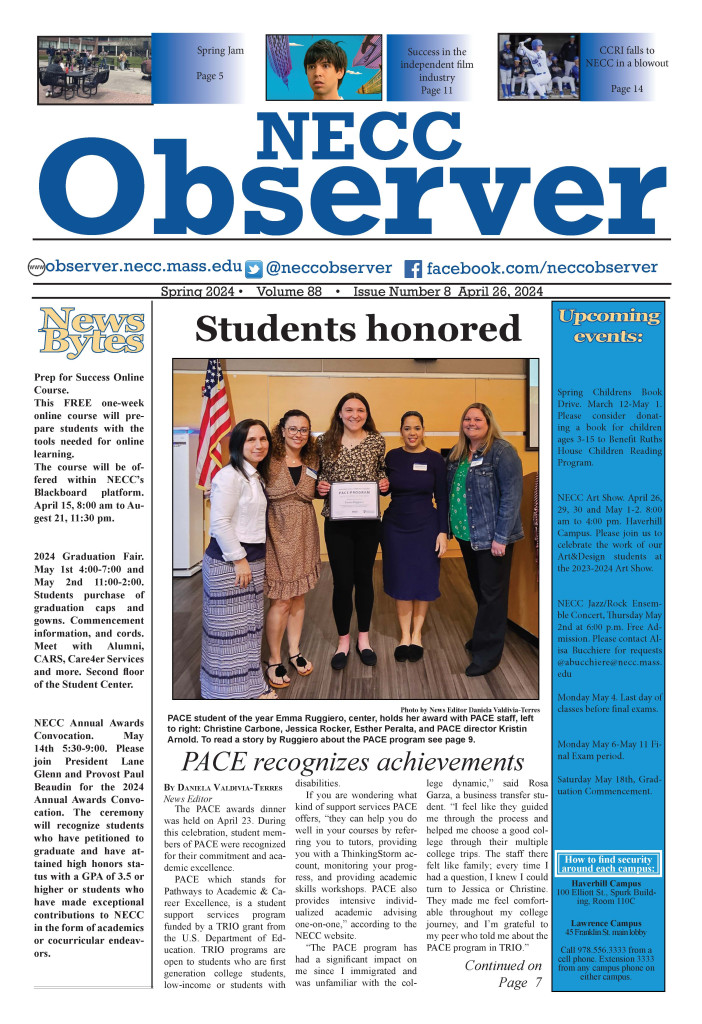Joshua Stokel is dedicated to supporting solid training for student officers in his first year as Director of NECC’s Police Academy, aiming to equip local officers with all the skills they need to properly serve their communities.
Joining the college this past November, Stokel entered a position with several challenges facing him. Most of the college campus remains empty with virtual learning being the new norm for safe education. While that option is available for training officers who are unable to risk their health or have come in close contact with COVID-19, the academy has organized a safe environment to maintain the close relationships that are essential to providing effective learning experiences for these young officers.
Staff instructor Sean Daley notes that vital skills such as de-escalation, empathy, respect, and emotional intelligence are important for effective policing. Daley and Stokel both remark on the importance in the profession of listening to other perspectives when working to understand and resolve conflicts, and the program works to instill the same mindset in the student officers. Daley says the academy’s goal is to provide “quality candidates and quality training” for local community police forces. Stokel adds, “If you have lousy people and good training, it doesn’t matter. You can have the best people and lousy training, and it won’t work.”
For the local communities, Stokel and Daley share their pride in this year’s graduating group. They commend the departments’ selections for the academy’s student officers. Continuing to move forward with a strong focus on culture, Stokel knows that character is a deciding factor in this profession. He says the student officers need a solid foundation to foster their values. They need to be thoughtful and courteous listeners to interact appropriately with their communities.
Stokel states that the academy’s training is built around these high standards and does not require significant changes in response to the social outcry against police brutality corruption. The only additional pressure stems from the need to “get ahead of the problem.” Daley emphasizes that is important for police training to recruit “the best people we can get,” and then provide professional training that prepares officers to communicate, de-escalate, and deal effectively with complicated situations.
Overall, the Police Academy isn’t wary of calls for police reform. As Sean Ward, Amesbury Department student officer, puts it, “You don’t have anything to worry about if you’re doing [the job] for the right reasons.”
The mission is evidently to foster honest officers. And they believe that honest officers don’t need to resist police reform. Ward and his peer Desiray Caracoglia, a Haverhill Department student officer, look forward to their careers. They don’t want to lose trust with those they swear to protect. “
We don’t want to lose our connection with the community,” Caracoglia says. Both she and Ward hope to reach out more to the individuals they’re protecting when emergencies aren’t present. Negative publicity is easier to gather than positive, so the two student officers want to represent their departments with friendliness and communication in the future.
Overall, the Police Academy is committed to continuing its work.
“At times, the profession is resistant to change,” Stokel says. “And I think that’s a mistake. We need to be ready to sit at the table and listen. We have to be ready to change. Change is a part of progress.”
Joshua Stokel can be contacted with his email jstokel@necc.mass.edu or office phone 978-241-4729 for more information.

